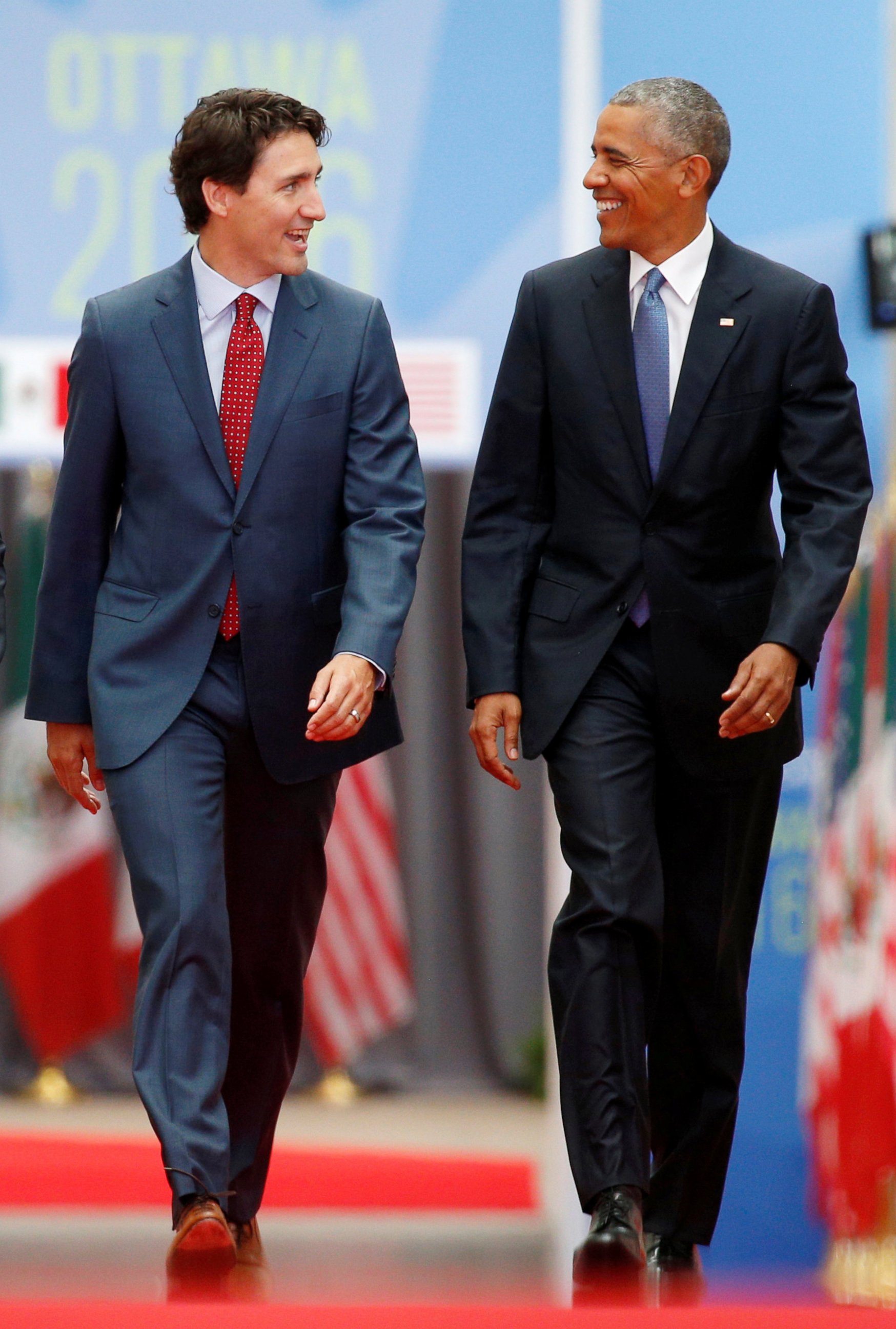Trump Reversal of Obama's Drilling Ban May Be Difficult, Experts Say
There was a joint U.S.-Canada announcement banning drilling in certain areas.
— -- The announcement by the Obama administration that vast areas of Arctic and Atlantic oceans are off-limits to offshore drilling may be harder for President-elect Trump to overturn than other actions the president has taken.
Concerns over how Trump and his cabinet picks -- which include the CEO of ExxonMobil and a leader for the Environmental Protection Agency who believes that the global warming debate is not settled -- will approach environmental issues raised questions over how effective Obama's drilling ban would be.
Trump transition communications director Jason Miller said today that they did not have "an immediate reaction" to the drilling ban, but Trump has indicated he's for offshore drilling.
Trump's energy policy states that he wants to "open onshore and offshore leasing on federal lands, eliminate moratorium on coal leasing, and open shale energy deposits," according to his website.
He also says he will "rescind all job-destroying Obama executive actions. Mr. Trump will reduce and eliminate all barriers to responsible energy production, creating at least a half million jobs a year, $30 billion in higher wages, and cheaper energy."
Environmental legal experts, however, think that because of the nature of the announcement, which is grounded in an earlier law and comes in the form of a joint effort from both the U.S. and Canada, the likelihood that it will stick seems higher than other executive actions.
Niel Lawrence, the Alaska director for the Natural Resources Defense Council, said that executive orders are typically “readily reversible” by presidents because he or she “has wide latitude to issue and order and then retract it.”
“That’s the way executive orders normally work. For public lands and waters, it’s a whole different ballgame. The Constitution gives congress complete authority over public lands and waters and that means presidents can only do what Congress expressly authorizes them to do,” Lawrence told ABC News.
What makes Tuesday’s announcement on the ban on drilling different from other executive actions is that it is grounded in the Outer Continental Shelf Lands Act of 1953, which says that the president has the right reserve some offshore areas and keep them off the market.

In doing so, that arguably makes the action permanent unless Congress changes the 1953 law, according to Alex Taurel, the deputy legislative director for the League of Conservation Voters, a political advocacy group.
“The plain language of the law that President Obama used...provides the president the authority to withdraw areas of our oceans form the rest of off shore drilling, but it does not provide the authority to undo the withdrawal,” said Taurel.
Taurel told ABC News that if Trump tries to undo this action once he is sworn into office, he will need backup from Congress to undo a more than half-century old law passed by the same body.
“He may try, but if he attempts to do this by himself, we believe he'd be overstepping his authority,” Taurel said of Trump.
Part of the reassurance against such a change comes from the fact that the designation of “the vast majority of U.S. waters in the Chukchi and Beaufort Sea as indefinitely off limits to offshore oil and gas leasing” came in conjunction with a similar announcement from Canada.
“If a Trump administration or Congress attempted to overturn these protections in some fashion, they would be out of step with our Canadian neighbors,” Taurel said. Environmental groups like the Sierra Club and Oceana have praised Tuesday’s announcement.
Michael Brune, the executive director of the Sierra Club, called Obama's move "historical action" and sees it as a continuation of his work "to build a climate legacy without equal."
Jacqueline Savitz, Oceana senior vice president for the United States, called it a "key step in protecting important areas of the Atlantic Ocean from offshore drilling."
"In doing so, he is making a good decision – a smart business decision – based on science and facts. This decision will help protect existing lucrative coastal tourism and fishing businesses from offshore drilling, which promises smaller, short-lived returns and threatens coastal livelihoods," Savitz said in the statement.
Not everyone is thrilled about the indefinite ban, with the National Ocean Industries Association, a political action committee for companies involved in developing offshore energy, releasing a statement suggesting that it oversteps the law.
"President Obama’s short sighted, unilateral withdrawal of Atlantic and Arctic Ocean areas from future oil and gas leasing not only risks the long-term energy security and energy leadership position of the United States, it violates the letter and spirit of the law," the statement reads.
“We are hopeful that the incoming Trump administration can repair some of the damage done to the offshore energy industry and America’s energy security over the past eight years by putting policies in place that increase, rather than decrease, access to federal offshore areas.”
A spokesperson for the group did not immediately respond to ABC News' requests for comment.



